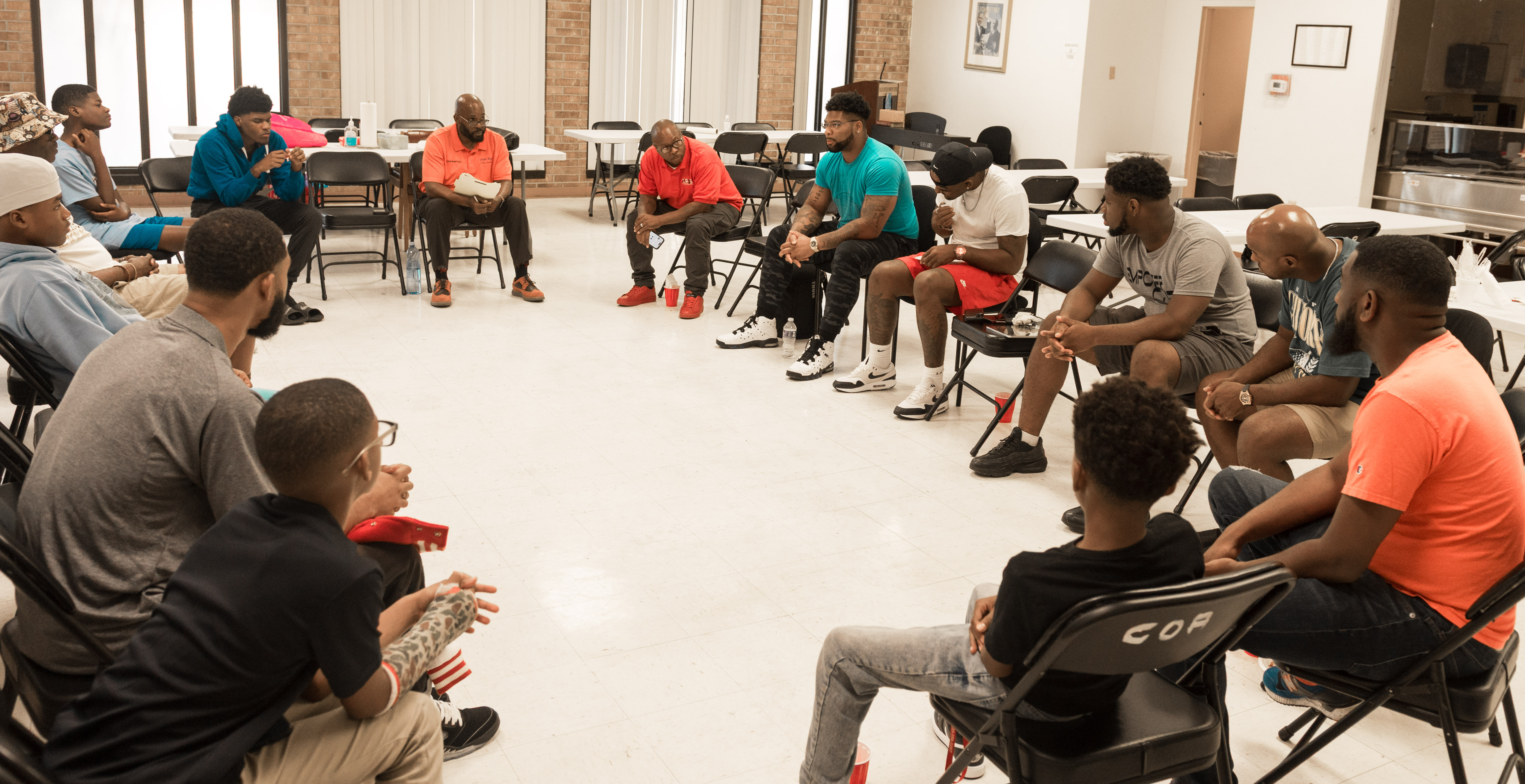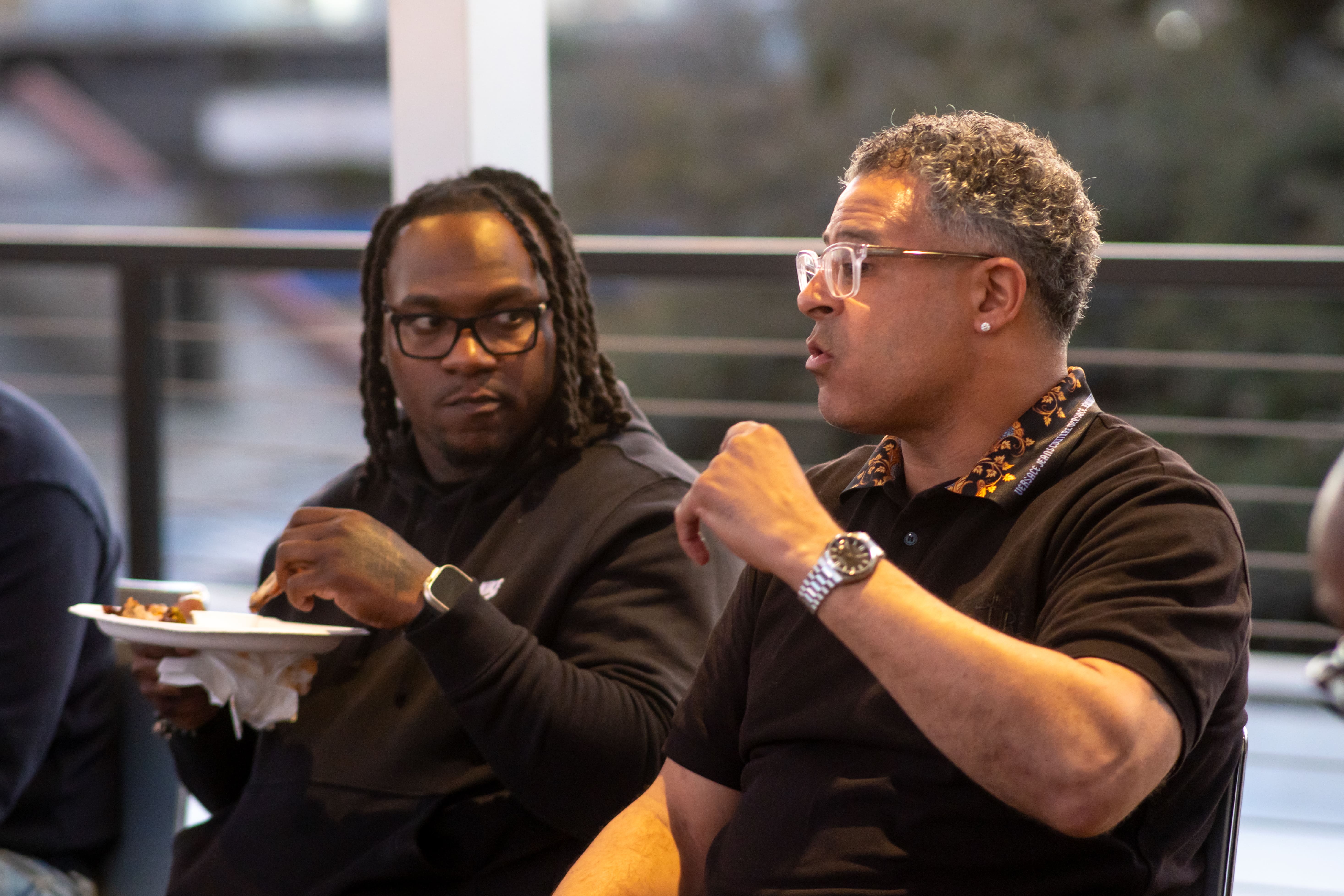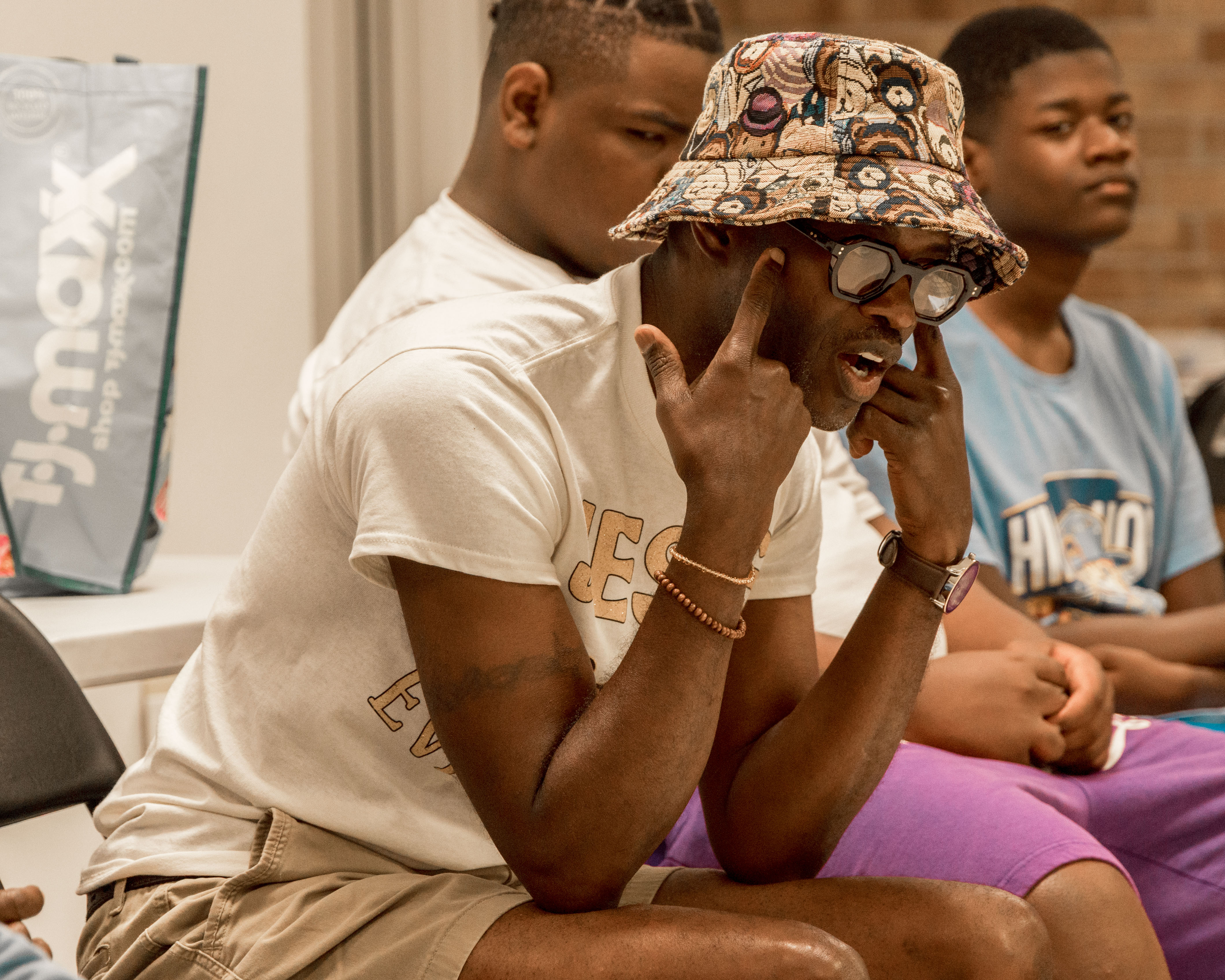
Brotherhood Circle
A Healing Circle Model for Intergenerational Men Involved in Gun Violence.
Gun violence continues to devastate communities, often leaving young men isolated and disconnected from support systems that can guide them toward positive change. A major gap exists in opportunities for interventionists to connect meaningfully with men who are currently or have previously been involved in gun violence. For many, there is a lack of safe spaces where they can freely express their experiences and connect with peers who have walked a similar path and successfully shifted their lives away from violence.
The Brotherhood Circle is designed as a supportive healing circle, providing a consistent and safe environment for men of all ages impacted by gun violence. Here, participants are encouraged to connect, share, and receive mentorship from others with lived experience who understand their challenges and offer perspectives on transformation. This unique approach fosters trust, builds community, and opens the door for men to receive the emotional support and resources they need to pursue positive, long-term change.
.png)

.jpg)

